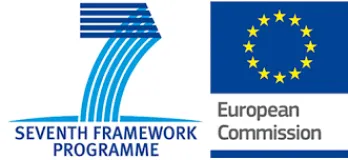FABRIC
Relevant project information
Dates
Project website
Role of CIRCE
Grant agreement number
Funded by

Description and objectives
FABRIC responds to the need to assess the potential and feasibility of large-scale integration of electric vehicles in transport and mobility systems.
The project will focus mainly on dynamic inductive charging, based on the principle of contactless energy transfer to propel vehicles as they drive over a coil located on the ground.
This new system will eliminate virtually all the inconveniences associated with the placement and transport of batteries inside the vehicle.
In addition, on-road charging will also enhance the integration and use of renewable energy sources, which is the only way to eliminate the use of fossil fuels in transportation and thus provide true sustainability to this sector from the socio-environmental aspect.
Thanks to an extensive consortium composed of key stakeholders from the sector, highly qualified and expert in this field, FABRIC will determine and evaluate the end-user requirements, as well as the guidelines and challenges affecting the large-scale implementation of wireless charging technologies, and the technological gaps that need to be bridged to provide rational and cost-effective solutions for network and road infrastructures.
FABRIC will also develop a comprehensive assessment of the information and communication technology (ICT) solutions that can be implemented, in order to facilitate the upgrade of the next generation of EVs, which will be based on the charging technology developments proposed by the project.
The developed solutions, conceived to allow a complete integration into the electric infrastructure and roads in urban and interurban environments for a wide range of EVs, will be tested in two demonstrators:
- Satory (France): these test facilities will enable experiments associated with dynamic inductive charging on intercity stretches.
- Torino (Italy): In these facilities it will be possible to test contactless charging technologies under different conditions in urban environments.
Value proposition
FABRIC's objective is to assess the technological, economic, social and environmental feasibility of dynamic inductive charging systems for electric vehicles, in order to clarify key aspects of this technology, such as existing trends in research and development within the automotive sector.
The project will address the present and future opportunities for EV wireless charging, taking into account the various factors that could impact the adoption of this technology by EV manufacturers and end users.
The ultimate goal is to make an essential contribution to the evolution of electro-mobility in Europe by identifying its benefits and costs in absolute terms, so that the investments needed in the coming years for the deployment and operation of electric vehicles can be fully defined and quantified.
CIRCE has extensive experience in R&D&I activities related to inductive charging of electric vehicles, so it will actively participate in a large number of the planned activities of the project.
Specifically, CIRCE will be in charge of defining the requirements for the grid connection of the charging systems, both dynamic and static. It will also define how the charging solutions will be able to interact with the grid at each of the test sites, ensuring an optimal power supply for each solution.
CIRCE will take part in the main tasks related to Electromagnetic Fields (EFM), such as the specification of the technical requirements of the system or the validation of the simulations in terms of operation and safety, in order to ensure compliance with the standards.
Project partners
CIRCE


